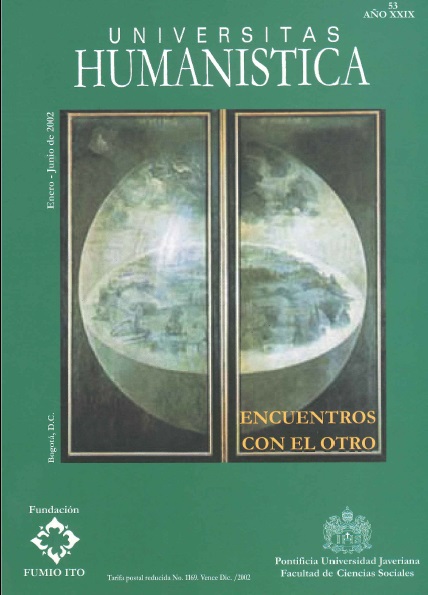Abstract
La cultura tiene por tarea esencial brindar un entorno de estabilidad a la especie humana (especie de índole precaria), entorno que le ha permitido desplegar un notable potencial civilizatorio. Durante milenios el núcleo de la cultura ha sido la religión de cada comunidad. Pero estas estructuras y normas constituidas por los hombres no exhiben la solidez y la permanencia de los instintos que son característicos del reino animal. Son intrínsecamente inseguras y transitorias. El disponer de consciencia impide al Hombre unirse totalmente a la naturaleza y fundirse con ella. El poseer consciencia y el carácter incompleto del ser humano son dos aspectos complementarios de un mismo y único fenómeno. Esta angustia básica subsiste hasta en nuestra época dominada y condicionada por la ciencia y la técnica. El progreso material en todas sus manifes taciones no ha podido hacer desaparecer ni las esperanzas ni4os temores elementales del ser humano. El Hombre en cuanto ser incompleto tiene que ponerse constantemente en cuestión e interpretarse siempre de nuevo; para ello precisa de apoyos, paradigmas y ejemplos, y la religión fue durante larguísmo tiempo el principal de todos ellos. Hace falta hoy en día, como en cualquier época pasada, algún vínculo emotivo, obviamente relacionado con la ética, que impida la descomposición social y moral, un peligro inherente a toda sociedad humana. El mejor vínculo emotivo, que además otorga sentido a las actividades humanas, ha sido la religión, que probablemente seguirá ejerciendo esa función por mucho tiempo.
This journal provides immediate open access to its content on the principle that making research freely available to the public, encourages greater global exchange of knowledge.
The journal Universitas Humanística is registered under a Creative Commons Attribution 4.0 International Public License. Thus, this work may be reproduced, distributed, and publicly shared in digital format, as long as the names of the authors and Pontificia Universidad Javeriana are acknowledged. Others are allowed to quote, adapt, transform, auto-archive, republish, and create based on this material, for any purpose (even commercial ones), provided the authorship is duly acknowledged, a link to the original work is provided, and it is specified if changes have been made. Pontificia Universidad Javeriana does not hold the rights of published works and the authors are solely responsible for the contents of their works; they keep the moral, intellectual, privacy, and publicity rights.
Approving the intervention of the work (review, copy-editing, translation, layout) and the following outreach, are granted through an use license and not through an assignment of rights. This means the journal and Pontificia Universidad Javeriana cannot be held responsible for any ethical malpractice by the authors. As a consequence of the protection granted by the use license, the journal is not required to publish recantations or modify information already published, unless the errata stems from the editorial management process. Publishing contents in this journal does not generate royalties for contributors.


